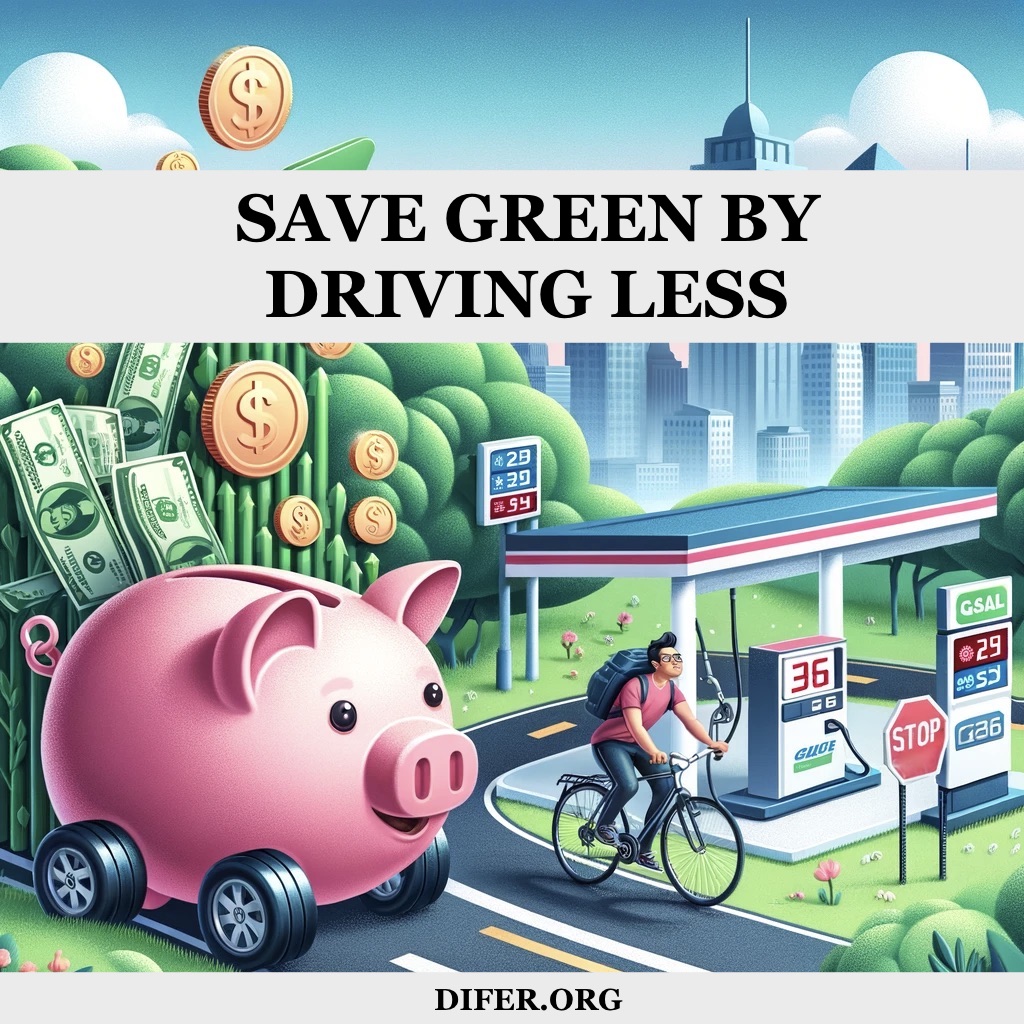Driving less not only benefits the environment but also leads to significant cost savings.
Here are some ways you can save money by reducing your driving:
- Fuel Savings: The most direct way to save money is by using less fuel. Driving less means fewer trips to the gas station, resulting in lower fuel expenses. This is especially significant if you own a gas-guzzling vehicle.
- Vehicle Maintenance: Driving less reduces the wear and tear on your vehicle, leading to lower maintenance costs. Regular maintenance, such as oil changes, tire rotations, and brake inspections, may be needed less frequently, saving you money in the long run.
- Insurance Discounts: Some insurance companies offer discounts for low-mileage drivers. If you drive less, you may qualify for reduced premiums, helping you save on your car insurance costs.
- Health Savings: Choosing alternative modes of transportation, such as walking or cycling, not only reduces your fuel costs but also promotes physical activity. Improved health can lead to long-term savings on healthcare expenses.
- Avoiding Parking Fees: If you use public transportation or carpool, you may be able to avoid or reduce parking fees associated with owning a personal vehicle. This can add up to significant savings, especially in urban areas with expensive parking.
- Reduced Depreciation: Vehicles depreciate in value with each mile driven. By driving less, you slow down the depreciation rate of your car, preserving its value for a longer period. This can be beneficial if you decide to sell or trade in your vehicle.
- Toll and Road Fees: Driving less means fewer toll expenses and potentially reduced wear and tear on your vehicle due to less frequent road use. This can lead to savings on toll fees and lower repair costs over time.
- Vehicle Ownership Costs: Owning a vehicle comes with various costs, including registration, licensing, and potential financing fees. Driving less may allow you to reevaluate your transportation needs and, in some cases, downsize to a more cost-effective vehicle or explore alternative transportation options.
- Reduced Impulse Spending: Driving less often means fewer opportunities for impulse spending on items like snacks, coffee, or other conveniences during your trips. This can lead to savings on wasteful purchases.
- Potential Tax Savings: In some regions, tax incentives or deductions may be available for individuals who use alternative transportation methods or own fuel-efficient or electric vehicles. Check with local tax authorities to see if you qualify for any tax benefits.
By adopting a driving less mindset and exploring alternative transportation options, you will contribute to environmental sustainability while also enjoying tangible financial benefits.
DIFER.ORG Supports the Reduction of Waste




